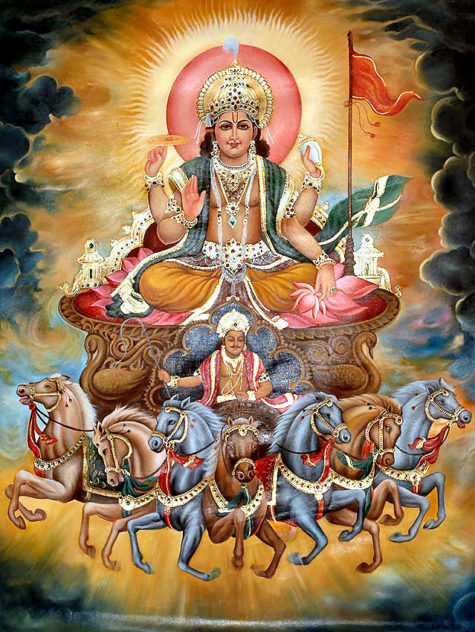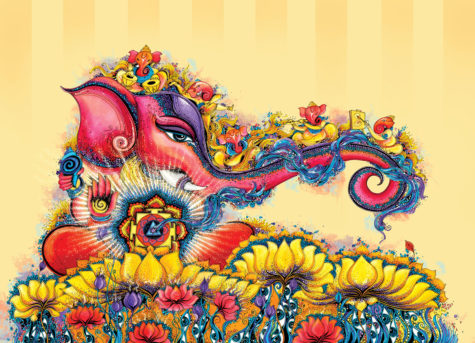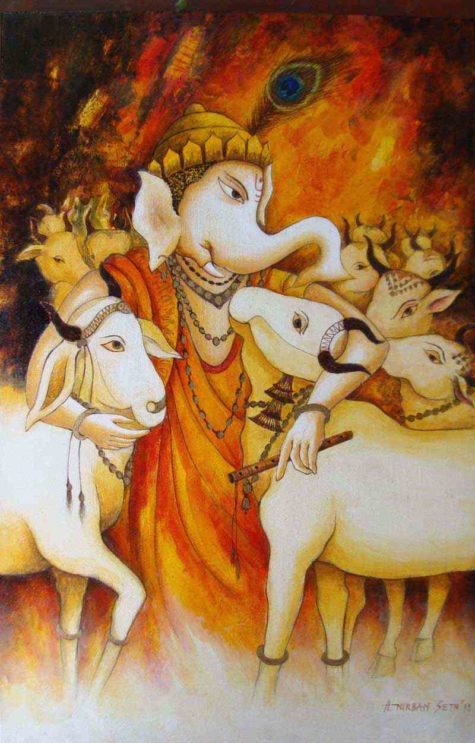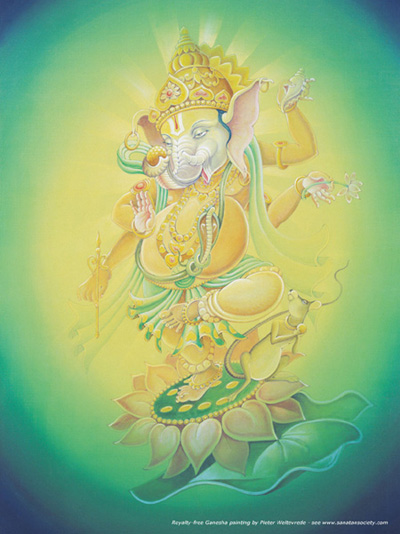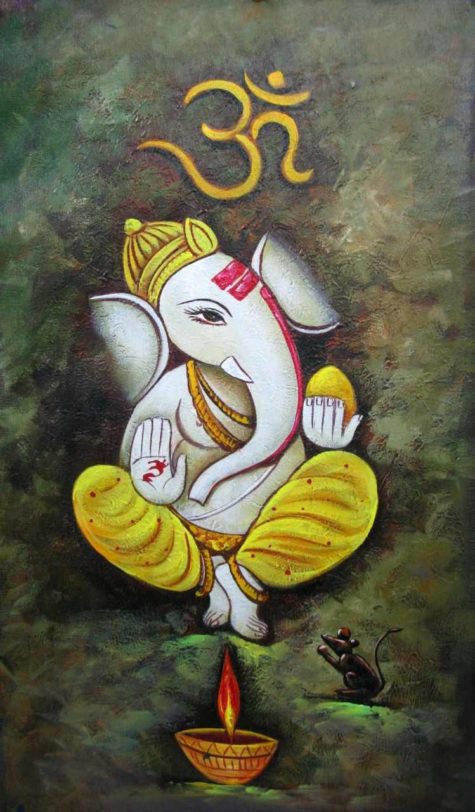God
Enlivening Shakti
Remember way back at the beginning of this project when I was talking about how life is like a garden? If you don’t remember it, here’s a short excerpt:
It occurred to me that time is like a seed, it starts out compressed and organized and then it explodes into something that cannot and will not ever be put back into that tight little package.
This is also a perfect example of how life might work. In the beginning, before we are born, maybe we are just an idea, a tight little package, neatly organized and full of possibilities. And then we get planted. And with the right conditions, just like a seed, our experience of life explodes just a little bit and a tiny root begins to extend out and down looking for nourishment and a home base. At the same time, we begin to extend up and out reaching for possibilities, the larger world. And there’s this huge drive to be more than we are right now, an irresistible push to expand and grow and be everything we can be.
I’m thinking that if life really is like a garden, maybe an infusion of energy, some metaphysical fertilizer, maybe some extra fairy sprinkles might be called for. With that in mind, I found a nice little article over at Yogapedia.com. It’s all about Shakti. Shakti is the power that nurtures the seed and brings it to fruition.
“Shiva and Shakti represent the masculine and feminine energy of the universe. We also have both energies within us, with Shiva being masculine and Shakti being feminine.
Shiva is the space that holds all the wild and wonderful Shakti energy. Every sound vibration in the universe is filled with the creative force of Shakti. Goddess energy is Shakti energy.”
Here’s the article:
Some days I bounce out of bed ready to tackle the day. Other days, it feels like climbing Mount Everest just to get myself to the meditation cushion!
This depends largely on how much general stress I may be under, how well I have eaten the day before, and what depth of sleep I have gotten. Sometimes I feel in the flow, everything clicking along as planned, and sometimes totally out of sync.
What makes the difference?
Everyone has high energy and low energy days, but to get myself balanced and filled with the mojo I need for my day’s activities, I know I need to listen to my body and my spirit, and take steps to address their needs regularly.
There is no shortage of energy in the universe, but sometimes we block its flow into our lives.
However, if we integrate the physical and spiritual aspects of our being through our yoga practice, we can draw upon the boundless energy that is always available to us, particularly shakti energy.
Here is why you need this divine feminine energy and four ways to build more of it in your life.
Why We Want Shakti
Our spiritual nature is a mirror of the Divine in its transcendental aspect as pure being. Our human nature reflects the activating energy of creation manifest in the world, known as shakti.
Shakti is the creative force of the universe and is the feminine principle of divine energy. As a vehicle for universal Consciousness, shakti is often associated humanly with creativity, fertility and change.
In Hinduism, Shakti is represented as the supreme goddess, or Divine Mother. She is the female counterpart to the divine masculine, Shiva. Within us, the qualities of both deities are embodied: the un-manifest potential of pure consciousness and the active creative energy put into manifestation to live our lives.
Other terms for shakti are chitta shakti or atma shakti. Chit and atma are both names for universal Consciousness.
Therefore, the shakti is the pure power moving into form as an extension of source Consciousness that is individually expressed in each of our lives.
Four Ways to Build More Shakti
We are Spirit come into form; so, the more shakti energy we can draw from the field of potential, the more vital and successful our individual lives become.
Most yoga practices help us to do this physically, mentally, or both. Consider these four approaches to building more shakti, or creative power and energy, in your life today.
- 1. Breathe Effectively
The power of shakti can be channeled through conscious breathing. By remembering to breathe slowly and deeply, we immediately begin drawing in more shakti.
Furthermore, techniques such as alternate nostril breathing (nadi shodhana) can increase and balance the movement of energy through the main nadis, or channels, in and around the spine.
To practice nadi shodhana:
Begin by curling your index and middle fingers into your palm.
Close the right nostril with your thumb.
Inhale through the left nostril.
Then close the left nostril with your ring finger and exhale through the right nostril.
Inhale again through the right.
Close the right nostril with your thumb and exhale through the left.
Inhale left, close, exhale right.
Inhale right, close, exhale left.
Keep up this pattern of changing the closure on the exhalation for several more minutes.
This is alternate nostril breath and, with consistent practice, it will regulate the shakti and you will be able to breathe more fully and clearly.
- 2. Stop the Energy Drains
Take stock of the energy expenditures in your life. Are you giving too much time and focus to work and not enough to exercise or creative pursuits? Are you worrying constantly rather than asking for help or trusting the flow of life? Are you ruminating over some past hurt, resentment or lost love?
Energy drains come in many forms. They are especially apparent when we are not practicing self-control in the ways we know we should. They zap our shakti and deplete our power of creation in the here and now. Over time, they can cause illness and severe fatigue. Where do you need to stop the energy drain?
Consider taking a day in silence to get recalibrated or doing more activities such as eating meals in silence. Talking all the time or being around others talking can drain us. Silence is healing for the soul. If we can combine silence with being in nature, it is even more powerful.
The shakti of Mother Earth replenishes us through sunlight, fresh air and the powerful sense of being at one with the natural elements.
- 3. Maintain a Virtuous Lifestyle
When we think of a healthy lifestyle, obviously there are the minimum requirements, such as the right amount of water, balanced nutrition, proper physical movement and rest. However, at a deeper level of health, “The Yoga Sutras of Patanjali” recommend internal as well as external practices that put us into a state of harmony and virtue.
Ultimately, true power is created through the alchemy of living in integrity, wisdom and humility. A healthy lifestyle is one that encompasses right action inwardly and outwardly. This would include practicing peacefulness, generosity, self-control, contentment, introspection and devotion.
Engaging some self-reflection can illuminate an aspect of your health that needs a tune-up at this time. Are you avoiding some truth you know you need to face? Are you taking reflective time to listen to your inner wisdom and be self-honoring? Are you allowing unbridled desires to drive your choices in an unhealthy way?
- 4. Develop a Spiritual Practice
Most of every day is spent developing our material lives — our careers, hobbies, physiques, etc. — but, for true success, we need to develop our spiritual lives as well. In the same way that a slow, gentle Yin yoga class can balance our bodies when we are feeling a lot of strong yang energy, our spiritual practice balances our ability to receive as well as to do.
To access an understanding and experience of your spiritual nature, many different practices can be used. Silent reflection, prayer, mantra repetition and devotional chanting are all ways that we can draw closer in our hearts to the connection we have with the divine Spirit.
These techniques help prepare us for sitting in the stillness of meditation through which we can cross the bridge from human awareness to spiritual awareness. In this unified state, the shakti of creation merges back into the universal Consciousness and we experience true Self once again.
Try This Shakti Visualization
To practice awakening your Shakti, practice bringing your attention to your body and to your world. Now visualize that everything in your awareness — everything you see, feel, sense, both inside and out — is made up of the goddess energy.
See everything as a manifestation of this divine feminine Shakti. Take a deep breath and imagine that the air you breathe sparkles with Shakti.
Your lungs are filled with the eternal vibration of Shakti. Even your mind is filled with shining particles of Shakti energy. In essence, the goddess is everything.
Source: Yogapedia.com
The Gods of the Sun
Because we are working on utilizing the power of the sun, I thought it might be interesting to share a list of solar deities. In my research for this post, I happened on to a translation of a very old Sumarian manuscript, this is one of the proverbs:
A man without a personal god does not procure much food, does not procure even a little food. Going down to the river, he does not catch any fish. Going down to a field, he does not catch any gazelle. In important matters he is unsuccessful. When running, he does not reach his goal. Yet were his god favourable toward him, anything he might name would be provided for him.
Who Are The Solar Deities?
African mythology
- Anyanwu, Igbo god believed to dwell in the sun
- Magec, Tenerife goddess of the sun and light
- Mawu, Dahomey goddess associated with the sun and the moon
- Ngai, Kamba, Kikuyu and Maasai god of the sun
Armenian mythology
- Ar, Arev, the sun god with its people as “children of the sun”
Australian Aboriginal mythology
- Bila, cannibal sun goddess of the Adnyamathanha
- Gnowee, solar goddess who searches daily for her lost son; the light of her torch is the sun
- Wala, solar goddess
- Wuriupranili, solar goddess whose torch is the sun
- Yhi, Karraur goddess of the sun, light and creation
Ainu mythology
- Chup Kamui, a lunar goddess who switched places with her brother to become goddess of the sun
Arabian mythology
Aztec mythology
- Huitzilopochtli, god of the sun and war
- Nanahuatzin, god of the sun
- Teoyaomicqui, god of lost souls, the sun, and the sixth hour of the day
- Tonatiuh, god of the sun and ruler of the heavens
Baltic mythology
- Saulė, goddess of the sun
Basque mythology
- Ekhi, goddess of the sun and protector of humanity
Brazilian mythology
Buddhist mythology
- Marici, goddess of the heavens, sun, and light
- Surya, god of the sun (Suriya Pariththa, Suthra Pitaka, Pali canon, Theravada Buddhism)
Canaanite mythology
- Shapash, goddess of the sun
Celtic mythology
- Áine, Irish goddess of love, summer, wealth, and sovereignty, associated with the sun and midsummer
- Alaunus, Gaulish god of the sun, healing, and prophecy
- Belenos, Gaulish god of the sun
- Étaín, Irish sun goddess
- Epona, horse deity occasionally linked with Étaín
- Grannus, god associated with spas, healing thermal and mineral springs, and the sun
- Macha, “sun of the womanfolk” and occasionally considered synonymous with Grian
- Olwen, female figure often constructed as originally the Welsh sun goddess
- Sulis, British goddess whose name is related to the common Proto-Indo-European word for “sun” and thus cognate with Helios, Sól, Sol, and Surya and who retains solar imagery, as well as a domain over healing and thermal springs. Probably the de facto solar deity of the Celts.
Chinese mythology
- Doumu, sun goddess sometimes conflated with Marici.
- Xi He, sun goddess and mother of the ten suns
- Yu Yi, god that carries the sun across the sky
- Xu Kai, god of the sun star
Egyptian mythology
- Amun, creator deity sometimes identified as a sun god
- Aten, god of the sun, the visible disc of the sun
- Atum, the “finisher of the world” who represents the sun as it sets
- Bast, cat goddess associated with the sun
- Horus, god of the sky whose right eye was considered to be the sun and his left the moon
- Ptah, god of craftsmanship, the arts, and fertility, sometimes said to represent the sun at night
- Ra, god of the sun
- Sekhmet, goddess of war and of the sun, sometimes also plagues and creator of the desert
- Sopdu, god of war and the scorching heat of the summer sun
Elamite
- Nahundi, god of the sun and law
Etruscan mythology
Finnish mythology
- Päivätär, goddess of the sun
Germanic mythology
- Sól/Sunna/Sunne, the common sun goddess among the Germanic tribes, from Proto-Germanic Sōwilō; was chased across the sky in her horse-drawn chariot by a wolf
Greek mythology
- Alectrona, speculated to be the goddess of the morning and man’s waking sense, daughter of Helios
- Apollo, god of light, healing, music and prophecy. His most common epithet was Phoebus (“Radiant”), and eventually he replaced Helios as the sun god, particularly during Hellenistic and Roman times.
- Athena, goddess of wisdom and crafts, with solar deity characteristics
- Eos, goddess and personification of dawn
- Helios, Titan god and personification of the sun and sight, he drove across the sky in a chariot
Hindu mythology
- Aryaman, god of the midday sun
- Savitr, god of the sun at sunrise and sunset
- Surya, the sun god, rides across the sky in a horse-drawn chariot ala Helios and Sol
- Aruna, charioteer of Surya, god of the morning sun.
- Tapati, sun goddess.
Hittite mythology
- Istanu, goddess/god of the sun and judgment
- Sun goddess of Arinna
- Sun god of Heaven, daylight god of judgement
- Sun goddess of the Earth, infernal goddess of the underworld.
Incan mythology
- Inti, god of the sun and patron deity of the Inca Empire
- Ch’aska (“Venus”) or Ch’aska Quyllur (“Venus star”) was the goddess of dawn and twilight, the planet
Inuit mythology
- Akycha, sun goddess worshiped in Alaska
- Malina, goddess of the sun found most commonly in the legends of Greenland
Japanese mythology
- Amaterasu, goddess of the sun
Lusitanian mythology
- Endovelicus, god of health and safety, worshiped both as a solar deity and a chthonic one
- Neto, claimed to be both a solar and war deity
- A possible sun goddess, whose cult has become that of Virgin Mary Nossa Senhora de Antime.
Māori mythology
- Tama-nui-te-rā, personification of the sun
Maya mythology
- Ah Kin, god of the sun, bringer of doubt, and protector against the evils associated with darkness
- Hunahpu, one of the Maya Hero Twins; he transformed into the sun while his brother transformed into the moon
- Kinich Ahau, god of the sun
Mesopotamian mythology
Minoan mythology
- A solar goddess of some sort, possibly the Snake Goddess.
Muisca mythology
Native American mythology
- Jóhonaaʼéí, the Navajo sun god, known as The One Who Rules the Day
- Kisosen, the Abenaki solar deity, an eagle whose wings opened to create the day and closed to cause the nighttime
- Napioa, the Blackfoot deity of the sun
- Tawa, the Hopi creator and god of the sun
- Wi, Lakota god of the sun
Roman mythology
Sami mythology
- Beiwe, goddess of the sun, spring, fertility, and sanity
Scythian religion
- Tabiti, ancient iranian goddess possibly connected with the sun.
Slavic mythology
Tocharian
- A “sun deity” (kaum näkte),possibly a goddess.
Turkic mythology
- Gun Ana, common Turkic solar deity, seen as a goddess in the Kazakh and Kyrgyz traditions
- Koyash, god of the sun
Persian mythology
- Mithra, often associated with the sun.
- Hvare-khshaeta, the sun yazata
Zunism
- The Zunbil dynasty and the subjects of Zabulistan worshiped the sun, which they called Zun. They believed that the sun was the god of justice, the force of good in the world and, consequently, the being that drove out the darkness and allowed man to live another day.
A Tremendous Force
Surely, there must be a tremendous Force, Power, Being or Presence, which has brought forth the sunlight, the rain, or the snow of this day. There is a Something operating invisibly in this universe, sending forth all this glory into expression, a glory of which I am a part, for I, too, have been sent into expression by That which sent forth the flowers and the trees, the birds, and all that is.
I am one with all life. And just as this invisible Force is pouring sunshine into the room, so it is pouring life and being into me, and through me: intelligence, wisdom, guidance, direction, love, care, and protection. All of these are flowing in and through me.
~Joel Goldsmith
The 108 Names of Surya
The oldest surviving Vedic hymns mention Sūrya with particular reverence for the “rising sun” and its symbolism as dispeller of darkness, one who empowers knowledge, the good and all life.
The Mahabharata epic opens its chapter on Surya that reverentially refers to him as the “eye of the universe,” soul of all existence, origin of all life, goal of the Samkhyas and Yogis, and symbol of freedom and spiritual emancipation.
Interestingly, Surya’s synonym Ravi is the root of the word ‘Ravivara‘ or Sunday in the Hindu calendar. In both Indian and Greek-Roman nomenclature for days of the week, the Sunday is dedicated to the Sun.
From The Mahabharata:
The Sun, which is the representation of the Supreme Lord Sri Krishna, is known by 108 names.
These are the hundred and eight names of Surya of immeasurable energy, as told by the Brahma. These names were disclosed of old by Lord Brahma, the self created, to the illustrious Sakra, and from Sakra to Narada, and from Narada to Dhaumya, and from Dhaumya to the sons of Pritha, the Pandavas.
For the acquisition of prosperity, I bow down to thee, O Bhaskara, blazing like unto gold or fire, who is worshipped of the gods and the Pitris and the Yakshas, and who is adored by Asuras, Nisacharas, and Sidhas.
Dhaumya said to Yudhistira:
Aruna, Sharanya, Karuna-rasa-sindhu, Asmanabala, Arta-rakshaka, Aditya, Adibhuta, Akhila-gamavedin, Achyuta, Akhilagya, Ananta, Ina, Vishvarupa, Ijya, Indra, Bhanu, Indriramandirapta, Vandaniya, Isha, Suprasanna, Sushila, Suvarchas, Vasuprada, Vasu, Vasudeva, Ujjaval, Ugrarupa, Urdhvaga, Vivasvat, Udhatkiranajala, Hrishikesha, Urjasvala, Vira, Nirjara, Jaya, Urudvaya-bhavaroopayukta-sarathi, Rishivandya, Rugghantr, Rikshachakrachara, Rijusva-bhavachitta, Nityastutya, Rikaramatrikavarnarupa, Ujjvalatejas, Rikshadhinathamitra, Pushkaraksha, Luptadanta, Shanta, Kantida, Ghana, Kanatkanaka-bhusha, Khadyota, Lunitakhila-daitya, Satyananda-svarupin, Apavarga-prada, Arta-sharanya, Ekakin, Bhagavat, Srishti-sthityantakarin, Gunatman, Ghrinibhrit, Brihat, Brahman, Eshvaryada, Sharva, Haridashva, Shauri, Dashadiksam-prakasha, Bhakta-vashya, Ojaskara, Jayin, Jagadanandahetu, Janma-mrityu-jara-vyadhi-varjita, Uchchasthana samarudha-rathastha, Asurari, Kamaniyakara, Abjavallabha, Antarbahih prakasha, Achintya, Atmarupin, Achyuta, Amaresha, Para Jyotish, Ahaskara, Ravi, Hari, Paramatman, Taruna, Varenya, Grahanam Pati, Bhaskara, Adimadhyantarahita, Saukhyaprada, Sakalajagatam Pati, Surya, Kavi, Narayana, Paresha, Tejorupa, Hiranyagarbha, Sampatkara, Aem Istarthada, Am Suprasanna, Shrimat, Shreyas, Saukhyadayin, Diptamurti, Nikhilagamavedya, Nityananda
Whoever with fixed attention recited this hymn at sunrise, obtaineth wife and offspring and riches and the memory of his former existence, and by reciting this hymn a person attaineth patience and memory. Let a man concentrating his mind, recite this hymn. By doing so, he shall be proofed against grief and forest-fire and ocean and every object of desire shall be his.
And a person, male or female, that recited this hymn every day in the two twilights (sunrise and sunset) his mind concentrated with ascetic abstraction, obtained every boon he desired, however difficult it may be that he ask for. If he is overtaken by danger, he is delivered from it; and if bound, he is freed from the bonds.
The Names as Mantras:
Here is a list of the 108 names in the form of a mantra along with the meaning. They can be used individually as a mantra practice, or you could recite them all as a long meditation. I especially love #30. When read aloud, in English, this makes an awesome invocation to the Sun!
- 1. Om Arunaya Namah
Adoration to the Reddish Brown one. - 2. Om Sharanyaya Namah
Adoration to The One Who Provides Refuge - 3. Om Karunarasasindhve Namah
Adoration to The Ocean of the Sentiment of Compassion - 4. Om Asamanabalaya Namah
Adoration to The One of Unequalled Strength. - 5. Om Artarakshakaya Namah
Adoration to The Protector from Suffering - 6. Om Adityaya Namah
Adoration to The Sun or The Son of Aditi - 7. Om Adibhutaya Namah
Adoration to The First Being - 8. Om Akhilagamavedine Namah
Adoration to The Knower of All Scriptures - 9. Om Achyutaya Namah
Adoration to Imperishable, The Steady One - 10. Om Akhilajnaya Namah
Adoration to The Knower of Everything - 11. Om Anantaya Namah
Adoration to The Unbounded One - 12. Om Inaya Namah
Adoration to The Strong One - 13. Om Vishvarupaya Namah
Adoration to The One with an All Pervading Form - 14. Om Ijyaya Namah
Adoration to The One to be Revered - 15. Om Indraya Namah
Adoration to Leader of the Gods - 16. Om Bhanave Namah
Adoration to The Bright One - 17. Om Indiramandiraptaya Namah
Adoration to The One Who has Gained the Abode of Indira (Lakshmi) - 18. Om Vandaniyaya Namah
Adoration to The Praiseworthy One - 19. Om Ishaya Namah
Adoration to The Lord - 20. Om Suprasannaya Namah
Adoration to The Very Bright One - 21. Om Sushilaya Namah
Adoration to The Good-Natured One - 22. Om Suvarchase Namah
Adoration to The Brilliant One - 23. Om Vasupradaya Namah
Adoration to The Bestower of wealth - 24. Om Vasave Namah
Adoration to The Deva (The Excellent One) - 25. Om Vasudevaya Namah
Adoration to Krishna - 26. Om Ujjvala Namah
Adoration to The Blazing One - 27. Om Ugrarupaya Namah
Adoration to The One with a Fierce Form - 28. Om Urdhvagaya Namah
Adoration to The One Who Rises Up - 29. Om Vivasvate Namah
Adoration to The One Who Shines Forth - 30. Om Udyatkiranajalaya Namah
Adoration to The One Who Produces a Lattice of Rising Beams of Light - 31. Om Hrishikeshaya Namah
Adoration to Lord of the Senses - 32. Om Urjasvalaya Namah
Adoration to The Mighty One - 33. Om Viraya Namah
Adoration to The Brave One - 34. Om Nirjaraya Namah
Adoration to The Imperishable One - 35. Om Jayaya Namah
Adoration to The Victorious One - 36. Om Urudvayabhavarupayuktasarathaye Namah
Adoration to The One Whose Charioteer has a Form without a Pair of Thighs - 37. Om Rishivandyaya Namah
Adoration to The One Worshipped by Rishis - 38. Om Rugghantre Namah
Adoration to The Destroyer of Disease - 39. Om Rikshachakracharaya Namah
Adoration to The One Who Moves Through the Wheel of Stars - 40. Om Rijusvabhavachittaya Namah
Adoration to The One Whose Mind by Nature is Sincere - 41. Om Nityastutyaya Namah
Adoration to The One Who is Fit to be Praised Always - 42. Om Rikaramatrikavarnarupaya Namah
Adoration to The One Who has the Form of the Letter Rikara - 43. Om Ujjvalatejase Namah
Adoration to The One with a Blazing Brilliance - 44. Om Rikshadhinathamitraya Namah
Adoration to The Friend of the Lord of Stars (the Moon) - 45. Om Pushkarakshaya Namah
Adoration to The Lotus-Eyed One - 46. Om Luptadantaya Namah
Adoration to The One Whose Teeth are Lost - 47. Om Shantaya Namah
Adoration to the one who is Pacified, Calm - 48. Om Kantidaya Namah
Adoration to The Bestower of Beauty - 49. Om Ghanaya Namah
Adoration to The Destroyer - 50. Om Kanatkanakabhushaya Namah
Adoration to The Brilliant Golden Ornament - 51. Om Khadyotaya Namah
Adoration to The Light of the Sky - 52. Om Lunitakhiladaityaya Namah
Adoration to The Destroyer of All Demons - 53. Om Satyanandasvarupine Namah
Adoration to The One Whose Nature is True Bliss - 54. Om Apavargapradaya Namah
Adoration to The Bestower of Liberation - 55. Om Artasharanyaya Namah
Adoration to The Provider of Shelter to the Distressed - 56. Om Ekakine Namah
Adoration to The solitary One - 57. Om Bhagawate Namah
Adoration to The Divine One - 58. Om Srishtisthityantakarine Namah
Adoration to The One Who Makes the Creation, Maintenance, and End - 59. Om Gunatmane Namah
Adoration to The One with Qualities - 60. Om Ghrinibhrite Namah
Adoration to The One Who Possesses Light - 61. Om Brihate Namah
Adoration to The Great One - 62. Om Brahmane Namah
Adoration to The Eternal Brahman - 63. Om Aishwaryadaya Namah
Adoration to The Bestower of Power - 64. Om Sharvaya Namah
Adoration to The One that Injures - 65. Om Haridashwaya Namah
Adoration to The One with Tawny Horses - 66. Om Shauraye Namah
Adoration to The Heroic One - 67. Om Dashadiksamprakashaya Namah
Adoration to The One Who Shines in Ten Directions - 68. Om Bhaktavashyaya Namah
Adoration to The One Who is Attentive to the Devotees - 69. Om Ojaskaraya Namah
Adoration to The Maker of Power - 70. Om Jayine Namah
Adoration to The victorious One - 71. Om Jagadanandahetave Namah
Adoration to The Cause of Joy for the World - 72. Om Janmamrityujaravyadhivarjitaya Namah
Adoration to The One Who is Free from Birth, Death, Old Age, Suffering, etc - 73. Om Uchchasthana Samarudharathasthaya Namah
Adoration to The One Established in a Chariot that Moves with Lofty Steps - 74. Om Asuraraye Namah
Adoration to The Enemy of the Demons - 75. Om Kamaniyakaraya Namah
Adoration to The Fulfiller of Desires - 76. Om Abjavallabhaya Namah
Adoration to The Most Beloved of Abja (Dhanvantari) - 77. Om Antarbahih Prakashaya Namah
Adoration to The One with Inner and Outer Brilliance - 78. Om Achintyaya Namah
Adoration to The Inconceivable One - 79. Om Atmarupine Namah
Adoration to The Form of Atman - 80. Om Achyutaya Namah
Adoration to The Imperishable One - 81. Om Amareshaya Namah
Adoration to The Lord of Immortals - 82. Om Parasmai Jyotishe Namah
Adoration to The Supreme Light - 83. Om Ahaskaraya Namah
Adoration to The Maker of the Day - 84. Om Ravaye Namah
Adoration to The One Who Roars - 85. Om Haraye Namah
Adoration to The Remover (of Sin) - 86. Om Paramatmane Namah
Adoration to The Supreme Being - 87. Om Tarunaya Namah
Adoration to The Youthful One - 88. Om Varenyaya Namah
Adoration to The Most Excellent One - 89. Om Grahanampataye Namah
Adoration to The Lord of Planets - 90. Om Bhaskaraya Namah
Adoration to The Maker of Light - 91. Om Adimadhyantarahitaya Namah
Adoration to The One Who is Solitary in the Beginning, Middle, and End - 92. Om Saukhyapradaya Namah
Adoration to The Bestower of Happiness - 93. Om Sakalajagatampataye Namah
Adoration to The Lord of All Worlds - 94. Om Suryaya Namah
Adoration to The Powerful One, or The Brilliant One - 95. Om Kavaye Namah
Adoration to The Wise One - 96. Om Narayanaya Namah
Adoration to The One Whom Men Approach - 97. Om Pareshaya Namah
Adoration to The Highest Lord - 98. Om Tejorupaya Namah
Adoration to The One with the Form of Fire - 99. Om Hiranyagarbhaya Namah
Adoration to The Golden Source (of the Universe) - 100. Om Sampatkaraya Namah
Adoration to The Maker of Success - 101. Om Aim Ishtarthadaya Namah
Adoration to The Bestower of the Desired Object - 102. Om Am Suprasannaya Namah
Adoration to The Very Bright One - 103. Om Shrimate Namah
Adoration to The Glorious One - 104. Om Shreyase Namah
Adoration to The Most Excellent One - 105. Om Saukhyadayine Namah
Adoration to The Bestower of Enjoyments - 106. Om Diptamurtaye Namah
Adoration to The One With a Blazing Form - 107. Om Nikhilagamavedyaya Namah
Adoration to The Knower of All Scriptures - 108. Om Nityanandanaya Namah
Adoration to The One Who is Always Blissful
Hymn To The Sun
Shamash was the Sun God of ancient Babylon. The prayer that follows is one of the longest and most beautiful of the hymns that have come down to us in cuneiform. I think this would make an awesome invocation, prayer, or meditation to greet the Sun as morning dawns.
Hail Shamash
You climb to the mountains surveying the earth,
You suspend from the heavens the circle of the lands.
You care for all the peoples of the lands,
And everything that Ea, king of the counselors, had created is entrusted to you.
Whatever has breath you shepherd without exception,
You are their keeper in upper and lower regions.
Regularly and without cease you traverse the heavens,
Every day you pass over the broad earth. . . .
Shepherd of that beneath, keeper of that above,
You, Shamash, direct, you are the light of everything.
You never fail to cross the wide expanse of sea,
The depth of which the Igigi know not.
Shamash, your glare reaches down to the abyss
So that monsters of the deep behold your light. . . .
Among all the Igigi there is none who toils but you,
None who is supreme like you in the whole pantheon of gods.
At your rising the gods of the land assemble,
Your fierce glare covers the land.
Of all the lands of varied speech,
You know their plans, you scan their way.
The whole of mankind bows to you,
Shamash, the universe longs for your light. . . .
Every single person is entrusted to your hands;
You manage their omens; that which is perplexing you make plain.
You observe, Shamash, prayer, supplication, and benediction,
Obeisance, kneeling, ritual murmurs, and prostration.
The feeble man calls you from the hollow of his mouth,
The humble, the weak, the afflicted, the poor,
She whose son is captive constantly and unceasingly confronts you.
He whose family is remote, whose city is distant,
The shepherd [amid) the terror of the steppe confronts you,
The herdsman in warfare, the keeper of sheep among enemies.
Shamash, there confronts you the caravan, those journeying in fear,
The travelling merchant, the agent who is carrying capital.
Shamash, there confronts you the fisherman with his net,
The hunter, the bowman who drives the game,
With his bird net the Fowler confronts You.
The prowling thief, the enemy of Shamash,
The marauder along the tracks of the steppe confronts you.
The roving dead, the vagrant soul,
They confront you, Shamash, and you hear all.
You do not obstruct those that confront you. . . .
For my sake, Shamash, do not curse them!
You grant revelations, Shamash, to the families of men,
Your harsh face and fierce light you give to them. . . .
The heavens are not enough as the vessel into which you gaze,
The sum of the lands is inadequate as a seer’s bowl…….
You deliver people surrounded by mighty waves,
In return you receive their pure, clear libations. . . .
They in their reverence laud the mention of you,
And worship your majesty for ever. . . .
Which are the mountains not clothed with your beams?
Which are the regions not warmed by the brightness of your light?
Brightener of gloom, illuminator of darkness,
Dispeller of darkness, illuminator of the broad earth.
An Acronym For Ganesha
Adopted By The Elephant God
If you are willing, and if you are wanting, the Lord Ganesha lifts you out of the fog of the materialistic conscious mind, establishing a connection and a relationship with you. This is a personal relationship with the Deity. There is nobody in between – just you and the God, Lord Ganesha.
It’s like being adopted in a way. If you were an orphan or abandoned on the streets of Sao Paolo or Madras, or on the streets of where ever there are little kids running around, you would be “free”. You could go through life listening to no one and exercising unrestricted free will, free instinctive will.
If you had a developed intellect, then you could exercise an intellectual will. You could do anything that you wanted to do, absolutely anything. Of course you would find that as you attempted to fulfill your desires, you were limited, sometimes prevented, by the natural forces within and without. But you could attempt anything.
If you were fortunate enough, foster parents might come along to help you. They would adopt you and take you into their home. Your new mother would begin to lovingly guide and direct your life. She would tell you, “You can play as you like in this room, but not in the others.” She is a wise mother and knows that you are accustomed to having your own way, so she lets you play freely within the confines of your own room.
But if she catches you playing in another room, she might say firmly, “You may play in your room, not here in this room.” You have lost your “free will” in being adopted by a mother and father, you are a part of their family now, and your well-being , your education, your training all now come under their will, to which you must adjust yourself and obey. They will watch over you and discipline you morning and night. They will protect you from getting into trouble with your “free will”.
It is the same when you evolve a relationship, a personal relationship with the Deity Lord Ganesha. He will not allow you to use your free will to get into difficulties. Guiding your carefully and protecting you along your way in your natural karma through life is His concern.
Little by little, slowly, imperceptibly a relationship evolves, a very personal, loving relationship, between the devotee and the elephant-faced God. Psychic protection is granted, physical protection, mental and emotional protection are all granted as boons by Him.
He will not allow His devotees to use their free, instinctive willfulness to make more kukarma by getting into difficulties. Rather, he will guide them carefully, protecting them every moment along the way so that their natural birth karmas may be worked through and sukarma created by right living. This is His main concern. Lord Ganesha loves and cares for His devotees. Once the devotee is connected to Him through the awakening of the muladhara chakra, loneliness is never experienced.
Ganesha is a truly wonderful, loving God. He has an extraordinary knack for unweaving complicated situations and making them simple. He can unweave his devotees from their karma, simplifying and purifying their lives. But this only happens after they have established a personal relationship with Him. Soon thereafter, changes begin to happen in their lives; and when they go through difficult times, they no longer become angry or live in fear or worry.
When difficult times come, they know it is because they are being unwound from accumulated and congested, difficult karmas or being turned in a new direction altogether. They know that at such a time they have to consciously surrender their free, instinctive willfulness and not fight the divine happenings, but allow the God’s divine will to guide their life. Such is the spiritual path of total surrender, know as prapatti.
from Loving Ganesa
by Satguru Sivaya Subramuniyaswami
Another Ganesh Mantra
Ganesha Mantra Text
Aum
Gajananam Bhootganadhisevitam
Kapitthya Jamboo Phalcharu Bhakshanam
Namami Vighneshwar Padpankajam
Aum
Translation
Elephant-faced, worshiped by the existing beings, of all living beings,
tasting the elephant apple (kaith) and jambolana (jamun),
the son of Uma, destroyer of grief,
I bow to the lotus feet of Ganesha who is Lord of all.
Here’s a cool video…
Source:
I found this cool video and accompanying mantra at the Sanatan Society, a website that is chock full of information about Mantras, Ayurveda, Yoga, Tantra, Hindu Gods and a lot more.
Sixteen Names of Ganesha
If you recite and/or listen to these sixteen names at the beginning of studies, at the time of marriage, while entering or departing a place, or at the battle field, all your obstacles will be removed.
Sumukhascha Ekadanthascha
Kapilo Gajakarnakaha
Lambodarascha Vikato
Vighnaraajo Ganaadhipaa
Meaning: The various names and associated forms of God Ganesha are enumerated and need to be meditated upon here – the one with an auspicious face, the single tusked Lord, the one who is of red color, the one with the ears of an elephant, the one with a big stomach, the one with a jovial disposition, the controller of obstacles, the Lord of the Ganas.
Dhoomaketur Ganaadhyashah
Phaalachandro Gajaanana
Vakratundo Shoorpakarno
Heyrambho Skandapoorvajaha
Meaning: The one of smoke gray color, the leader of the ganas, the one who has moon in the front of his forehead, the elephant faced one, the one with a curved trunk (or broken tusk), the one with big (basket like) ears, the one who is heroic like a buffalo, the elder brother of Skanda (Skanda is another name for Lord Subrahmanya)
Shodashaitaani Namaani
Yah Pateth Srunuyaadapi
Vidyaarambhe Vivahe Cha
Praveshey Nirgamey Tatah
Sangraamey Sarva Kaaryeshu
Vighnas Tasya Na Jaayathe
Abheepsitaartha Siddhyartham
Poojitoya Surairapi
Sarva Vighna Chhido Tasmai
Sree Ganaadhipataye Namaha
Meaning: Whoever the one who recites and listens to these sixteen names at the beginning of studies, at the time of marriage, while entering or departing a place, or at the battle field, all their obstacles will be removed. Even the Gods worship Lord Ganesha to receive the fulfillment of their actions. Oh Lord Ganesh, the One who has this power of destroying all the obstacles in the way of the devotees, I prostrate before you.
From: Saidarshan.org
Twelve Names of Ganesha
We already explored the 108 names of Ganesh, but these twelve names are in the form of a shloka, which is a verse, proverb, hymn or poem that uses a specific meter. This group of verses is said to be sage Narada’s offering to Lord Ganesh. So, if you like doing these Sanskrit chants, here are some more. I think this is meant to be recited in its entirety, rather than bits and pieces.
Pranamya Shirasa Devam
Gauriputram Vinaayakam
Bhakataavaasam Smare Nityam
Aayuh Kaamartha Siddhaye
Meaning: Every day, I bow down to that Lord, the son of Gowri, the Lord one who lives in the heart of the devotees, blessing them always with good health and prosperity.
Prathamam Vakratundam Cha
Ekadantam Dviteeyakam
Thriteeyam Krishna Pingaaksham
Gajavaktram Chaturthakam
Meaning: Starting from here the twelve names of Ganesha are mentioned and he is worshiped in those different forms. The first as the Lord with the curved trunk; second, as the one with only one tusk, third, as the one with black (red/brown) eyes, fourth, as the one with giant structure.
Lambodaram Panchamaam Cha
Shashtam Vikatameva Cha
Saptamam Vighnaraajendram
Dhoomravarnam Tathaashtamam
Meaning: Fifth, as the one with a big (long) stomach, six, as the one with a huge body Seven, as the remover of obstacles, eight, as the one with smoke gray color
Navamam Phaalachandram Cha
Dasamam Tu Vinaayakam
Ekaadasam Ganapatim
Dvaadasam Tu Gajaananam
Meaning: Ninth, as the one with moon on the front of His head, tenth, as the foremost leader, eleventh, as the leader of the ganas, twelfth as the one with elephant face.
Dvaadasaitaani Naamaani
Trisandhyam Yah Pathernnarah
Na Cha Vighna Bhayam Tasya
Sarva Siddhikaram Prabho
Meaning: Any person, who remembers these twelve names of Ganesha, three times in a day, will have all their obstacles and fear removed and will attain success.
From: Saidarshan.org
- Radical Self Care Project Overview by shirleytwofeathers - No Comment
- Radical Self Care Image Gallery by shirleytwofeathers - No Comment
- It’s A Wrap by shirleytwofeathers - 3 Comments
- Something To Consider by shirleytwofeathers - 1 Comment
- Nurturing Your Precious Self by shirleytwofeathers - 3 Comments
me: Make Your Own Violet Fire
Abdulrahman: Money Chant – Very Fast
Shirley Twofeathers: It’s A Wrap
Daniel Knirs: It’s A Wrap
Shirley Twofeathers: It’s A Wrap








